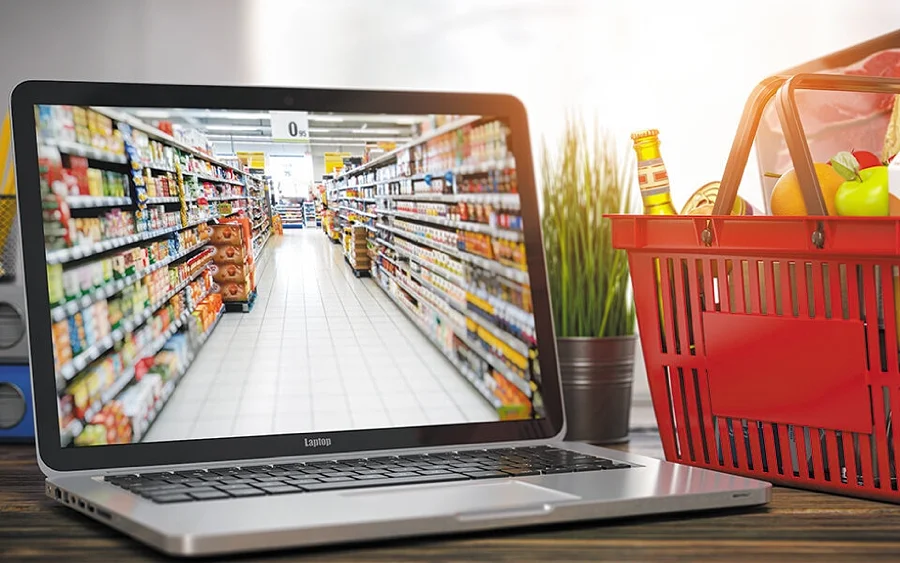
Article - Grocery Cartels Unveiled: A Deep Dive into Price Gouging and Greed
Tracy Turner February 28, 2024

The insidious presence of greedy grocery cartels has cast a shadow over the food industry, with allegations of price fixing, anti-competitive practices, and market manipulation by major grocery companies. Collusion among grocery retailers has led to an unfair advantage in the market, resulting in detrimental consequences for consumers. The impact of price-fixing has been profound, with inflated prices and limited choices for shoppers. Legal consequences loom for these cartels as investigations into their monopolistic practices unfold. Consumer advocacy groups are rallying against the dominance of grocery giants, calling for more competition in the US grocery sector to ensure fair pricing and a diverse marketplace. The need for transparency and accountability in the industry has never been more pressing.
In a shocking exposé published in 2024, the grocery industry was revealed to be plagued by cartels engaging in price gouging and collusion reminiscent of drug cartels. This investigation uncovered a web of deceit and greed that spanned across various towns and states, implicating major supermarket chains in a scheme to inflate food prices for their own financial gain.
The Greedy Players: Supermarket Giants
Leading the pack in this nefarious operation were well-known supermarket giants such as Walmart, Kroger, Albertsons, and Publix. These companies, which are supposed to be competitors in the market, were found to be working together behind closed doors to fix prices and manipulate the cost of essential goods. Walmart owns multiple store chains including Walmart Supercenter, Walmart Neighborhood Market, Sam's Club, and Walmart Discount Stores. Kroger owns various store chains such as Kroger, Ralphs, Fred Meyer, and Food 4 Less. Albertsons owns store chains like Albertsons, Safeway, Vons, and Jewel-Osco. Publix, on the other hand, is a privately owned and operated supermarket chain based in the southeastern United States, so it does not own other major chains.
Price Fixing and Collusion: A Comparison to Drug Cartels
The tactics employed by these grocery cartels bore a striking resemblance to those used by drug cartels. Just as drug lords conspire to control the supply and demand of illicit substances, these supermarket giants conspired to control the prices of everyday groceries. Through secret agreements and backroom deals, they artificially inflated prices, leaving consumers at their mercy.
Mathematical Analysis: Exposing the Truth Behind Food Prices
Contrary to popular belief that inflation was solely responsible for rising food prices, a mathematical analysis revealed that much of the increase was driven by the greed of these grocery cartels. By comparing the actual cost of production with the prices charged to consumers, it became evident that price gouging was rampant across various product categories.
Examples of Price Gouging Greed
In towns like Springfield, Illinois, and Greenville, South Carolina, consumers were shocked to discover the extent of price gouging taking place. Basic necessities such as bread, milk, and eggs were marked up significantly higher than their true value, leading to financial strain on families already struggling to make ends meet.
At Kroger locations in Dallas, Texas, and Publix stores in Orlando, Florida, reports emerged of coordinated efforts to keep prices artificially high across different chains. This collusion not only harmed consumers but also stifled competition in the market, allowing these companies to maintain their stranglehold on the industry.
The 2024 article on grocery cartels shed light on a dark underbelly of the industry where greed and price gouging ran rampant. By exposing the collusion and manipulation orchestrated by supermarket giants, it called into question the ethics and practices of these corporate behemoths.
Grocery Cartels’ Greed and Price Gouging in 2024
In 2024, the issue of grocery cartels’ greed and price gouging has become a significant concern for consumers. These cartels, often formed by major food retailers, manipulate prices to maximize their profits at the expense of consumers. This unethical behavior leads to inflated prices on essential food items and household goods, such as toilet paper, far exceeding the rate of inflation.
Examples of Food Items and Toilet Paper Prices Exceeding Inflation
These examples illustrate how grocery cartels’ greed and price gouging practices have led to exorbitant price hikes on everyday essentials, making it increasingly difficult for consumers to afford basic necessities. Publix, Albertsons, Kroger, and Walmart are major players in the grocery industry, each with a significant market share. Collusion among these giants can have severe consequences for consumers. When these companies engage in price-fixing schemes, it distorts the market and eliminates healthy competition that would typically drive prices down.
Sources:
1World Economic Forum:
2Harvard Business Review
3US Department of Justice Antitrust Division
4The Wall Street Journal
5Harvard Business Review
6United States Department of Justice